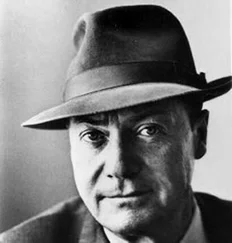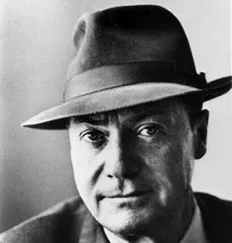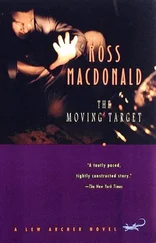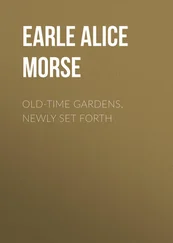"Just a minute, Miss Tennent. I think I remember now. She probably came here on a Wednesday, when you were off. I may have forgotten to make a note of her visit." He turned to Mrs. Norris, who blocked the doorway. "Was she that light-brown woman from San Francisco?"
"I don't know where she was from. All she said was that you sent her to me. She came to my house in a taxi and I let her move in." There was a veiled accusation in Mrs. Norris' tone: no doctor should send a potential murderee to a respectable landlady.
"You can hardly say I sent her to you. She'd just got off the train, and was looking for a place to stay, and I may have mentioned your place as a possibility. What's this about Alex being arrested?"
Mrs. Norris told him. The receptionist stood flat against the wall at his elbow, steadily watching his face.
The doctor clucked sympathetically. "Too bad. He's a fine boy. I'll go down and talk to the D.A. if you like." He turned to me again: "You a detective?"
"A private one. I'm working for Mrs. Norris."
"Found out anything?"
"I hoped I would from you. Where the woman came from, what she was doing here, what was the matter with her."
"She came here in the middle of the afternoon, said she got off the San Francisco train. Just a minute, I'll check my records." He placed his hat on his head, dropping ten years.
I followed him into the waiting room, where he rummaged in a battered filing cabinet behind the receptionist's desk. The rest of the furniture was equally dilapidated. There was a worn linoleum rug on the floor.
He looked up with a deprecatory smile: "I'm sorry, I have so many cash patients, I don't keep complete records. I do remember this woman though. She had some kind of female trouble, a slight irregularity. She'd blown it up in her head into a malignant disease. I set her mind at rest as well as I could, and gave her a hormone prescription, and that was all there was to it. Typical hypochondriac."
"She wasn't seriously ill, then."
"I'd stake my reputation on it." The room mocked his words, and he grinned sheepishly. His teeth were poor. "Of course it's possible," he added slowly, "that she didn't accept my reassurances, and killed herself out of pure funk. In any case, it's certainly rough on Jenny."
"Mrs. Norris is a friend of yours?"
"Yes, I'd call her a friend. She's often nursed patients for me, in their homes. Jenny's not a trained nurse, but she's a dependable woman. Used to teach school in Detroit. Her son's quite brilliant, I hear. Scholarship student. He's Jenny's pride and joy."
"Evidently. You say the woman came here on a Wednesday."
"It must have been—" He consulted the desk-calendar " — Wednesday, August 16, I'd say. Five weeks ago yesterday."
"Thanks, Doctor. One other thing. Would you class her as a suicidal type?"
"I didn't talk to her for very long, and I'm no psychiatrist. All I can say is that it's possible. She was prone to phobias, certainly."
I left him standing in the unsuccessful room, hatted and ill-at-ease in his own house. Miss Tennent and Mrs. Norris were close together in the hallway, talking in low tones about Lucy's death. The white-uniformed girl leaned towards the dark woman with an eagerness that almost amounted to sickness. When I brushed past her she shied away.
Santana was closeted with a Superior Court judge in the judge's chambers. The District Attorney was holding himself incommunicado in his office. The Deputy D.A. I talked to wouldn't say a word about the case, except to indicate that Alex was still in jail, for all kinds of excellent reasons. I finally found the Sheriff eating lunch in a lunch-bar across the street from the courthouse.
Sheriff Kerrigan was a big middle-aged man in a rumpled business suit. He was reasonable, as elected police officials often tended to be. My connection with Santana, and Santana's influence on the Mexican and Negro vote, were no disadvantage at all. He took me to see the body at the morgue.
This occupied the rear of a fly-specked mortuary a short walk from the courthouse. The dead woman lay on a marble-topped table under a sheet. The Sheriff removed the sheet, and switched on a naked light. I looked down into wide blank eyes. Lucy's skin was shriveled and jaundiced from loss of blood, which had wasted through a gaping slash in her neck. Her orange silk pyjamas were heavily stained. I noticed before I looked away that the silk was real. She had red mules on her feet.
"Not pretty," Kerrigan said. "I don't like it any better than you do."
"Where did she come from?"
"I'll be frank with you," he answered heavily. "I haven't the slightest idea. The city identification officer is stumped—"
"No kidding, Sheriff."
"Absolutely not. There's nothing in her room to give us a lead. Repeat, nothing. No laundry marks, no social security card, no labels on the clothes that tell us anything, nothing written down. It's possible she couldn't write, I don't know. All we know is she's dead."
"Autopsy?"
"Not yet. The cause of death is obvious, so there's no hurry. Snickersnee." He drew a finger under his own soft jowls.
"With the Norrises' bolo knife?"
"Sure looks like it. The knife was there on the floor, covered with blood."
"How would it get into her room, assuming that Alex Norris didn't take it there?"
"He did, though. He admits it."
"You have a confession?"
"Hell, no. He claims she asked him for it day before yesterday. According to him, she saw him using it to split some kindling, and she said she'd like to have it in her room. He took it to her when he was finished cutting wood. He says."
"Any reason given?"
"She wanted it to protect herself, he says. Santana thinks she was contemplating suicide, but that's what Santana would think, or say he thinks."
"What do fingerprints say, or is that a secret?"
He lit a cigar without offering me one: I voted in Los Angeles. "It's no secret. Both hers and his are on it. Mostly hers."
"That's consistent with suicide."
"It's also consistent with murder. Suicides don't cut themselves that deep, unless they're completely nutty, and she wasn't. Besides, there are no hesitation marks. And the boy admits they quarreled. The D.A. wants him arraigned." He sounded faintly regretful.
"You don't think he did it, though."
"I'll let a jury form my opinion for me. The evidence warrants arraignment, you can see that. Somebody killed her, and the Norris kid was the one that quarreled with her." He switched off the light, and his cigar winked at me like a red eye.
"What about?"
"He won't say. He admits that they quarreled yesterday, that's all."
"Is that what he meant when he said he was responsible?"
"You figure it out." He covered Lucy with the sheet again, and we went outside.
I drove to Mrs. Norris's address. The street was on the precarious edge of the slums, in but not quite of the unofficial ghetto. A street of small well-kept houses standing among neat pocket-handkerchief lawns and flowery borders. Mrs. Norris's white clapboard bungalow was one of the best in its block. There was a postwar Cadillac at the curb in front of it, being admired by a group of Negro children. I parked behind the Cadillac.
Its owner was inside with Mrs. Norris. He was a slight, sallow Mexican in his fifties, with a dry laconic voice and effusive manners. He embraced me with one arm and shook my hand with the other. "Glad to see you, Mr. Archer. Glad you could make it." His breath, which was not unpleasant, smelt of spices. A mummy might look and smell and sound as Santana did, if it started to breathe again in a sudden onrush of enthusiasm.
I drew away, and sat in the armchair Mrs. Norris indicated. "What's the word on your client?"
"They still habent the corpus . I just passed a bad hour arguing with Judge Bronson. He won't issue a writ. They're going to arraign Alex in Justice Court." He took out a gold cigarette holder, caught Mrs. Norris's look of disapproval, and put it away again, gracefully.
Читать дальше












